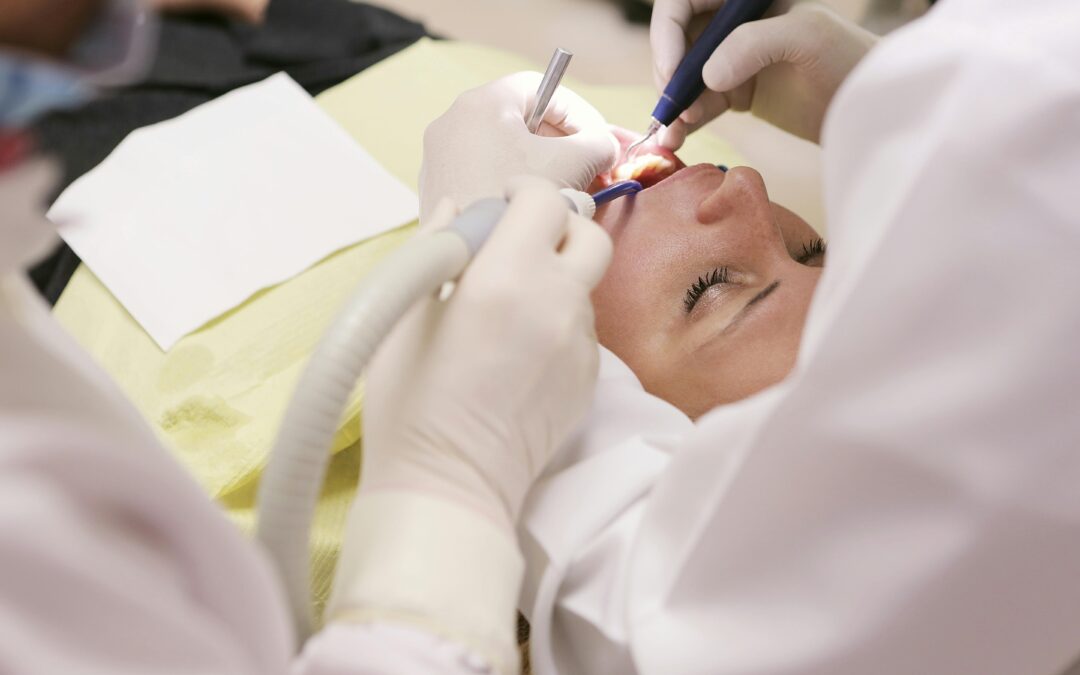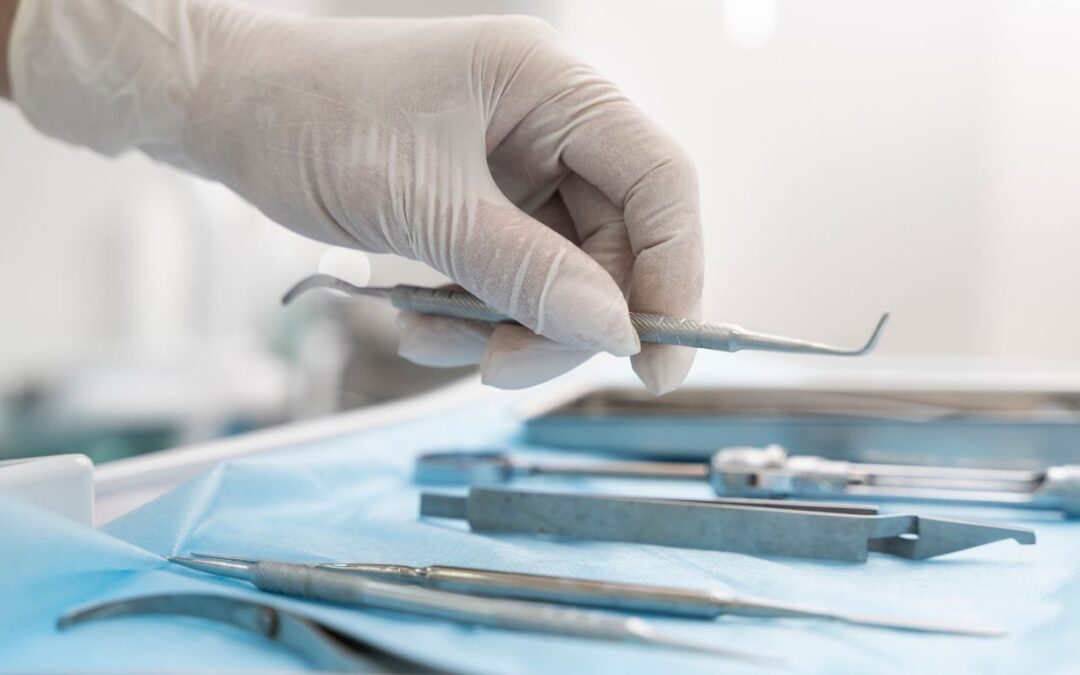Tooth whitening in Tenerife
Specialists in teeth whitening in Tenerife

What is Teeth Whitening?
Our whitening process begins with a detailed assessment of your oral health, to ensure that the treatment is tailored to your needs. We use advanced techniques to minimise sensitivity and maximise effectiveness, customising the procedure according to the type of stain and each patient’s individual dental characteristics.
With a combination of in-clinic treatments and home care recommendations, we make sure you get the results you want. Our team of experts will be with you every step of the way, offering personalised attention and professional advice to care for your new smile.
If you are looking for a dentist in La Laguna to perform teeth whitening, our clinic has the technology and experience to take care of all your oral health needs. Likewise, if you are in the south, our team of dentists in Las Chafiras awaits you with a wide range of dental services.
If you are interested in rejuvenating your smile and would like more information about our teeth whitening service or any other treatment, do not hesitate to contact us.
HOW DOES TOOTH WHITENING WORK?
We use a peroxide-based whitening gel, which is activated by a special light source, allowing it to effectively penetrate and break down stains both on the surface and in the deeper layers of the tooth.
This approach not only ensures immediate and noticeable results, but also promotes a safer and more comfortable whitening experience for the patient, minimising post-treatment sensitivity. At SJD Dentists we recommend a series of guidelines for post-treatment care of teeth whitening, thus ensuring the durability of the results.
CUSTOMER REVIEWS SJD DENTISTS


In this section we will answer the most important frequently asked questions that most clients have about tooth whitening.
What are the possible side effects of tooth whitening?
Tooth sensitivity is one of the most common side effects that can be experienced during tooth whitening treatment. The severity of sensitivity can vary from patient to patient and may affect the treatment more or less.
If tooth sensitivity occurs, the dentist may recommend special toothpastes for sensitive teeth and, if the sensitivity is extreme, temporarily discontinue the tooth whitening treatment. Most discomfort should disappear within 24-48 hours after stopping treatment.
Some people believe that tooth whitening damages tooth enamel, but according to studies, the treatment does not damage the integrity or fragility of teeth. However, there are some contraindications to tooth whitening, such as pregnancy and breastfeeding, as well as the presence of untreated cavities or severe loss or cracks in tooth enamel.
What should you do before and after tooth whitening?
Prior to teeth whitening, a dental cleaning is recommended to remove any plaque or tartar build-up on the teeth and to ensure that the whitening treatment is effective. In addition, foods and beverages high in dyes, such as coffee, tea, red wine and cola, should be avoided for at least the first 24 hours after treatment.
After teeth whitening, the dentist's recommendations should be followed to care for the teeth and prolong the results. It is important to avoid consuming foods and drinks with high colouring content for the first few days after treatment. You should also brush your teeth regularly with a mild toothpaste and floss daily to prevent plaque build-up.
In addition, it is recommended to avoid smoking and limit consumption of acidic foods and beverages to prevent wear on tooth enamel and to keep teeth white and healthy. If tooth sensitivity occurs after treatment, a special toothpaste for sensitive teeth (whitening agent) or fluoride gels can be used to alleviate discomfort.
Can I have my teeth whitened if I have sensitive teeth?
If you have sensitive teeth, it is important to consult a dentist before undergoing tooth whitening treatment. Tooth sensitivity can be a common side effect of tooth whitening, and in some cases, it can be more severe in people with sensitive teeth.
Prior to treatment, your dentist will evaluate your oral health and gums to determine if you are a suitable candidate for teeth whitening. If you have sensitive teeth, the dentist may recommend pre-treatment with specific products to reduce tooth sensitivity.
During treatment, your dentist may use gels with lower concentrations of hydrogen peroxide to reduce the risk of tooth sensitivity. He or she may also use special techniques to protect your teeth and gums during the procedure.
After treatment, it is important to follow your dentist's recommendations to minimise tooth sensitivity. This may include avoiding hot or cold foods and drinks, as well as acidic or sweet products. The use of toothpastes for sensitive teeth may also be recommended.
Does tooth whitening work on all types of stains?
Tooth whitening is an effective cosmetic treatment to reduce and remove certain stains on teeth. However, not all tooth stains are removed by tooth whitening.
Tooth stains can be divided into two categories: intrinsic stains and extrinsic stains. Extrinsic stains, which are stains on the surface of the tooth, are stains that are easily removed by teeth cleaning. These stains are usually caused by the consumption of foods and beverages with dark pigments, such as coffee, tea, red wine and tobacco.
Intrinsic tooth stains are those found in the internal structure of the tooth and are caused by various factors such as the use of certain medications, dental infections, trauma, genetics, ageing, among others.
These stains cannot be removed with normal dental cleaning and are often more difficult to treat than extrinsic stains, which are found on the surface of the tooth and are caused by the consumption of foods and drinks with intense pigments such as coffee, red wine, berries, among others.
In some cases, intrinsic stains can be treated by tooth whitening procedures, but depending on the cause of the stains, they may not be completely removed. If the stains are very severe, it may be necessary to resort to more invasive options such as dental veneers or crowning.
It is important to remember that prevention is the best way to avoid intrinsic and extrinsic stains on teeth. Maintaining good dental hygiene, avoiding foods and drinks that stain teeth, and seeing your dentist regularly for check-ups and cleanings are important steps to maintaining a healthy, radiant smile.
What are the types of tooth whitening?
Tooth whitening in a dental clinic and performed by a trained professional. During the procedure, a hydrogen peroxide or carbamide peroxide-based whitening gel is applied to the patient's teeth. This gel is activated by an LED or laser light, and the process usually takes between 30 and 60 minutes.
At-home teeth whitening involves the use of customised trays that are filled with a whitening gel and placed on the patient's teeth for several hours a day for a period of one to two weeks.
It is important that a dentist assesses each patient's case and recommends the type of tooth whitening that best suits their needs.
Is tooth whitening safe?
Tooth whitening is considered a safe and effective treatment to lighten the colour of teeth. However, as with any dental procedure, there are potential risks that must be considered.
One of the most common side effects of tooth whitening is temporary tooth sensitivity. This is because the peroxide used in the process can penetrate the dentin and affect the nerves. Tooth sensitivity usually disappears within a few days after treatment.
Another possible side effect is irritation of the gums. If the whitening gel comes into contact with the gums during the procedure, it can cause irritation, redness and swelling. However, this is temporary and usually disappears quickly.
Also, in some cases, tooth whitening may not be effective in lightening certain types of stains or discolourations. In these cases, other treatments, such as dental veneers, may be needed to achieve the desired results.
It is important to remember that tooth whitening should only be performed by a trained dentist or dental hygienist using products approved by health authorities. It is also recommended that patients inform their dentist of any previous dental problems or sensitivities before undergoing teeth whitening.
How long does tooth whitening last?
The duration of tooth whitening can vary depending on the type of treatment and the patient's dental care habits.
In-office teeth whitening usually lasts between 6 months and 2 years, depending on the patient's diet and lifestyle. Foods and beverages high in dyes, such as coffee, tea, red wine and soft drinks, as well as tobacco, can affect the duration of tooth whitening.
It is important to follow your dentist's instructions and avoid foods and beverages high in dyes during the teeth whitening process to maximise results and prolong the duration of treatment.
In general, to maintain teeth whitening results for as long as possible, it is recommended to maintain good dental hygiene, avoid foods and beverages high in dyes, and schedule regular visits to the dentist for dental cleanings and dental health assessments.
PAYMENT TERMS
We offer payment facilities
We offer you different payment methods so that you can have the dental treatments you require whenever you need them.
TRUST US
Personalised services
Hundreds of satisfied customers endorse a team of highly qualified dentists who guarantee you the best results.
SPECIAL PROMOTION
Come accompanied on your first visit
Ask for our loyalty rate. You and your companion can benefit from this promotion.
Latest articles on teeth whitening
Dentists Tenerife: trust, professionalism and proximity
At SJD Dentists we firmly believe that choosing between different dentists Tenerife should not be a matter of chance, but an informed and conscious decision. I want to tell you personally how we work and why every day more and more people trust us to take care of their oral health. Since we started, our […]
Dentist in Tenerife: Confidence, technology and personalised care for your oral health
Why choose a dentist in Tenerife to take care of your oral health? When it comes to health, trusting a professional who is close, prepared and committed is key. If you are looking for a dentist in Tenerife that combines experience, personalised attention and the latest technology in dental treatments, you are in the right […]
- Calle San Juan, 52,38202 La Laguna
- Avenida Modesto Hernández González, 3,38629
Las Chafiras, San Miguel de Abona
















